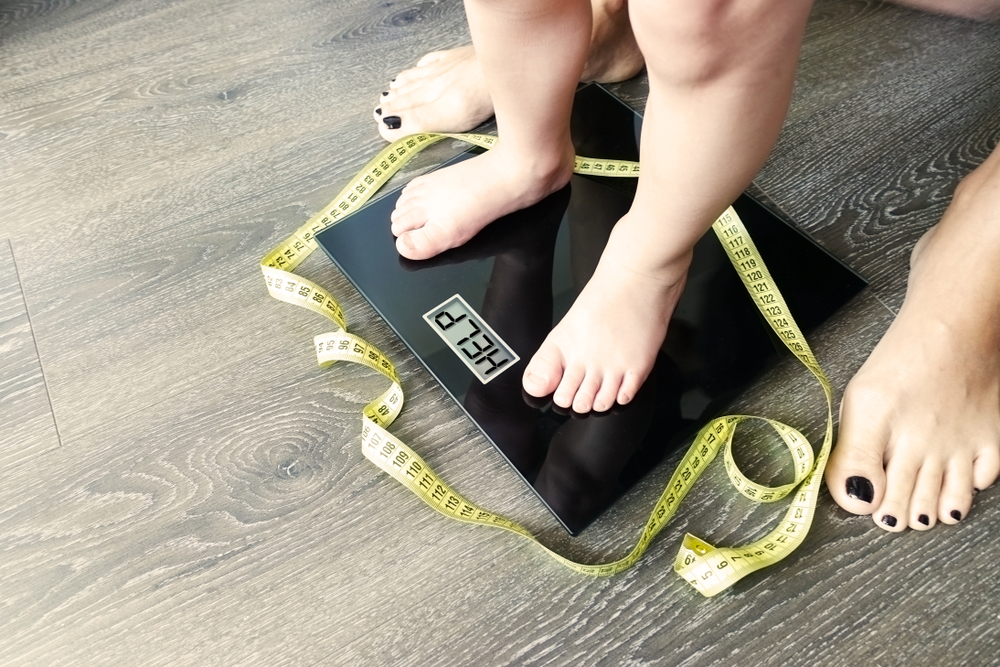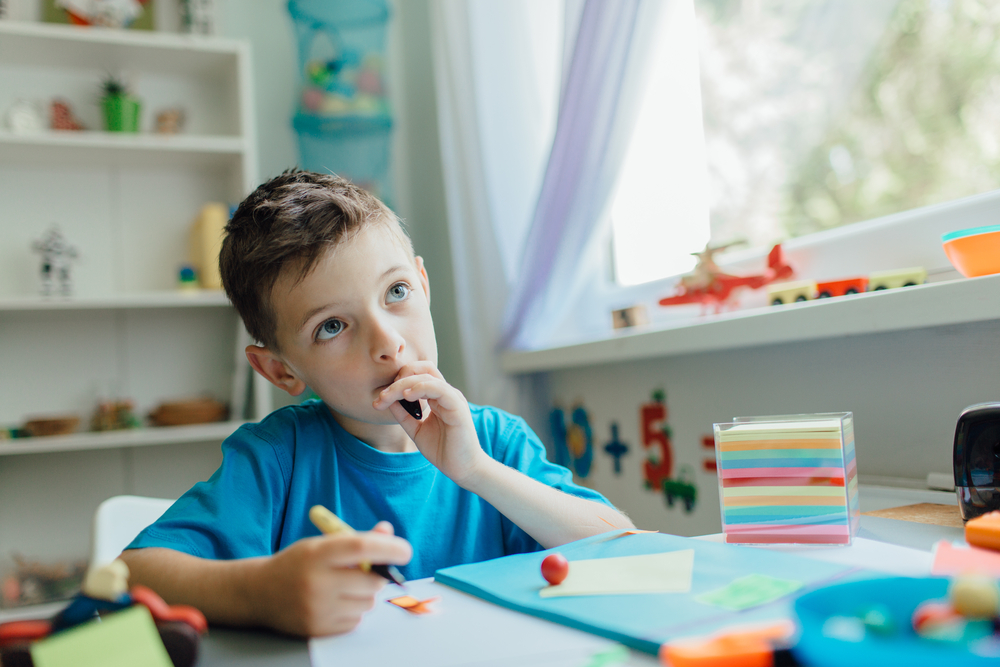Developing analytical skills Science Worksheets for Ages 3-7
3 filtered results
-
From - To
Boost your child's critical thinking with our specialized Science Worksheets designed for ages 3-7. Cultivate curiosity and analytical skills through interactive activities that make learning fun and engaging. Our worksheets incorporate observation, comparison, and problem-solving tasks to foster a love for science early on. Each worksheet is tailored to enhance cognitive development and build a strong foundation in scientific reasoning. Ideal for parents and educators, these printable resources are essential for developing young minds, helping children understand the world around them, and preparing them for future academic success. Start your child's scientific journey today!
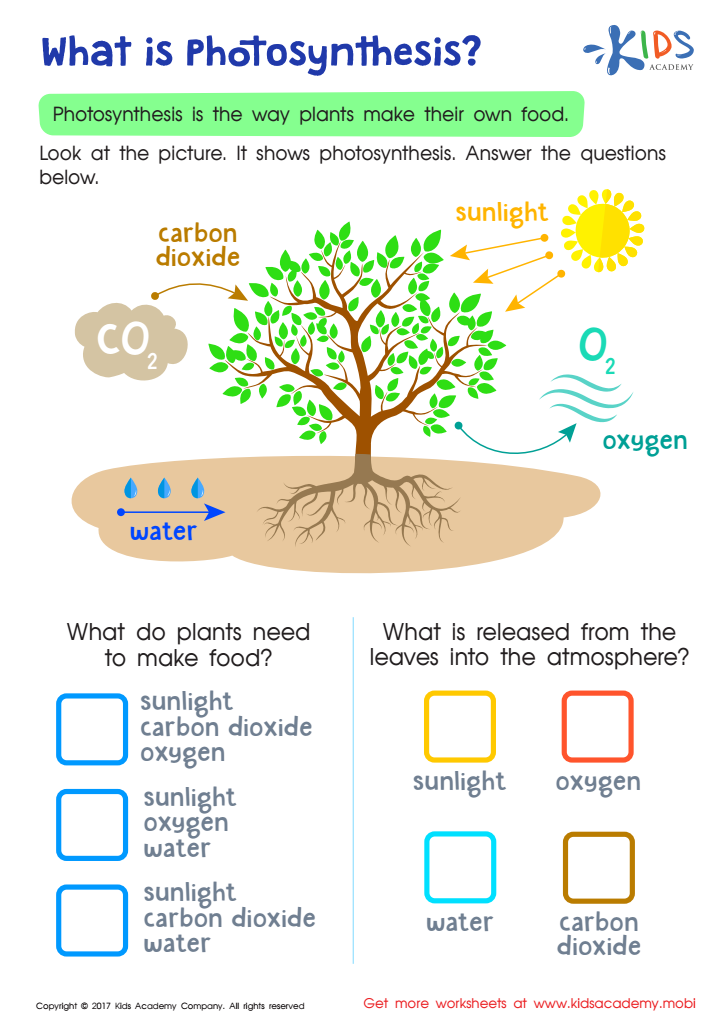

What is Photosynthesis Printable
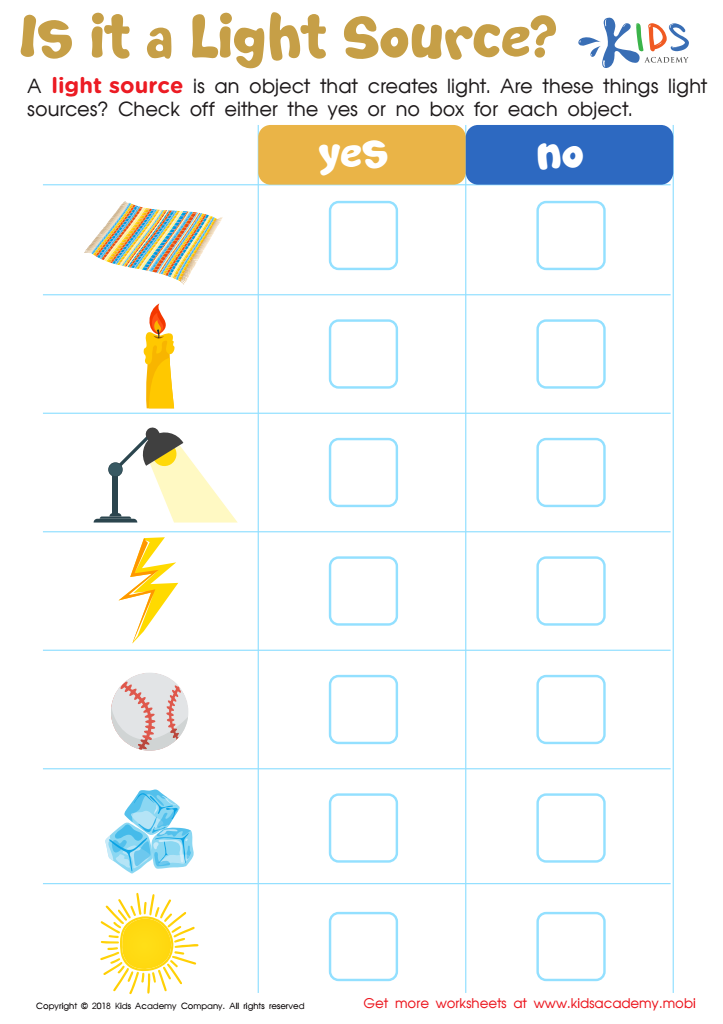

Is It a Light Source? Worksheet
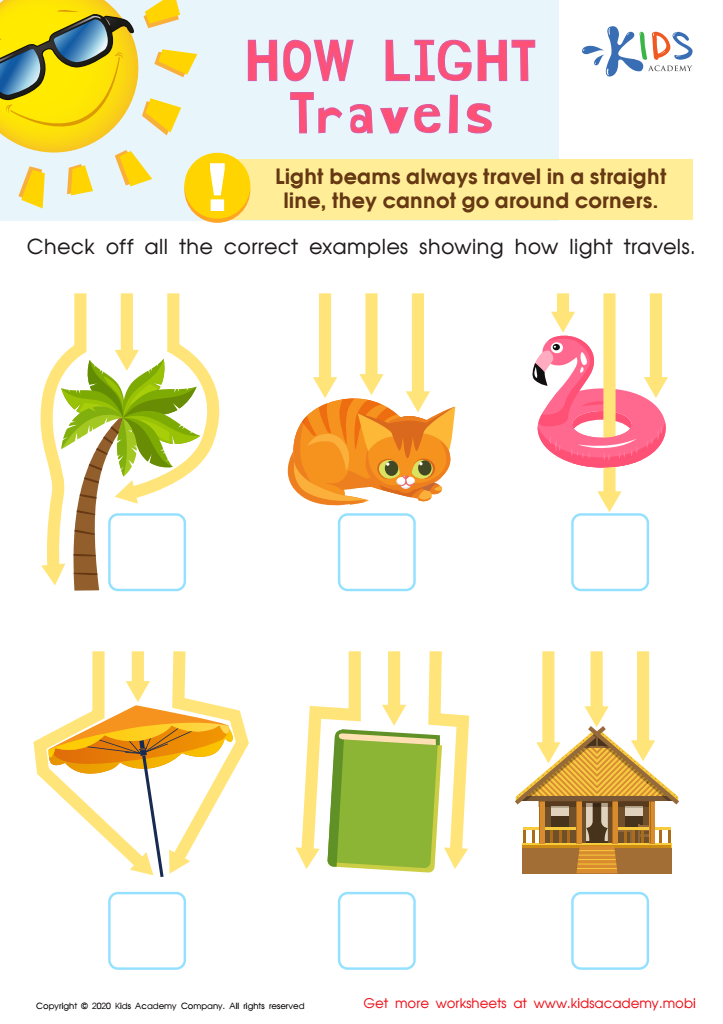

How Light Travels Worksheet
Developing analytical skills in science for children aged 3-7 is crucial for fostering critical thinking, problem-solving abilities, and a lifelong love of learning. At this developmental stage, children are naturally curious and eager to explore the world around them. By nurturing their analytical skills, parents and teachers can help channel this curiosity into constructive and educational experiences.
Encouraging young children to ask questions, make observations, and engage in simple scientific experiments lays a strong foundation for future learning. When kids learn to compare, contrast, and draw conclusions based on evidence, they develop a mindset that values evidence-based reasoning. These skills are beneficial not just in science but across all academic subjects, setting them up for future success in school.
Moreover, early exposure to scientific thinking helps children understand and appreciate the natural world, fostering a sense of wonder and environmental stewardship. As they grow, these children are more likely to become informed citizens who can engage thoughtfully with the increasingly complex world around them.
Incorporating fun, hands-on activities that promote analytical thinking can also improve a child's attention span and executive functioning skills, which are essential for success in both academic and real-world settings. Therefore, nurturing analytical skills in early childhood is an investment in a child's holistic development.
 Assign to My Students
Assign to My Students




